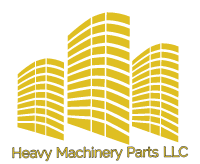Today we talk about loaders, remember that it is part of the series of posts about types of heavy machinery.
Loaders are essential machines in various industries, particularly in construction, mining, and agriculture. These versatile pieces of equipment are designed to move materials from one place to another, efficiently handling tasks such as loading, transporting, and unloading heavy materials. Whether you’re working on a construction site, a mining operation, or an agricultural project, understanding the role, advantages, and potential drawbacks of loaders is crucial for optimizing their use.
What Are Loaders Used For?
Loaders are primarily used for moving large quantities of materials, such as soil, gravel, sand, and debris. Their primary function is to scoop up material with their front-mounted bucket, transport it, and then deposit it in another location or onto a dump truck. In construction, loaders are often used to clear debris, level ground, and load materials into trucks. In mining, they are essential for moving ore, coal, and other extracted materials. In agriculture, loaders are commonly used for handling feed, fertilizer, and other bulk materials.
Don’t forget, we also offer a wide range of spare parts for heavy machinery, so feel free to inquire about any replacement needs you may have. Just click on contact us.
Advantages of Loaders
- Versatility: Loaders come in various sizes and configurations, making them suitable for a wide range of tasks. From compact loaders for small-scale projects to large wheel loaders for heavy-duty operations, there’s a loader for every job.
- Efficiency: Loaders are designed to handle heavy loads quickly and efficiently. Their ability to transport materials over short distances makes them indispensable on job sites where time and productivity are critical.
- Ease of Operation: Modern loaders are equipped with advanced controls and ergonomic designs, making them easier to operate. Features like automatic leveling and joystick controls improve precision and reduce operator fatigue.
- Durability: Built to withstand harsh conditions, loaders are constructed with robust materials and components that ensure longevity even in the most demanding environments.
Disadvantages of Loaders
- Limited Reach: Loaders are generally limited in their ability to reach high places, making them less suitable for tasks that require vertical lifting compared to other machinery like cranes or forklifts.
- Cost: High-quality loaders come with a significant price tag, both in terms of initial purchase and ongoing maintenance. For small businesses or those with limited budgets, this can be a considerable investment.
- Fuel Consumption: Due to their size and the nature of the work they perform, loaders can be fuel-intensive, leading to higher operational costs, especially in large-scale operations.
- Terrain Limitations: While loaders are excellent on solid ground, they may struggle in extremely rough or uneven terrain. Specialized models or additional attachments may be needed to navigate such environments effectively.
Loaders are indispensable machines in many industries, offering versatility, efficiency, and durability. However, like any equipment, they come with limitations, such as limited reach and high operating costs. By understanding these advantages and drawbacks, businesses can make informed decisions on how best to utilize loaders in their operations, ensuring they get the maximum benefit from this powerful equipment. Whether you’re moving earth on a construction site or handling materials in a mining operation, loaders are a critical tool that can significantly enhance productivity.
